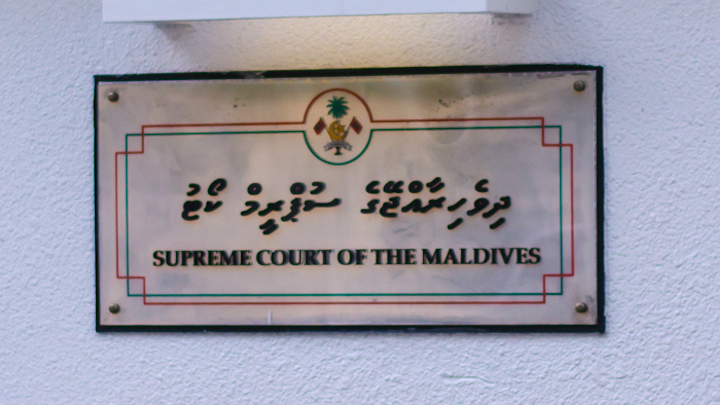The Supreme Court has granted itself the final word on rulings that strike down laws and regulations by announcing that such verdicts would be up for review regardless of whether the parties involved desired an appeal.
In a series of circulars issued on Sunday, the apex court said that should the Maldives’ lower courts repeal provisions or all of laws and regulations in issuing a verdict, the appellate High Court must step in and ensure the validity of the annulment.
The Supreme Court will in turn review the High Court’s verdict.
Lower courts are obliged to forward case documents to the appellate courts if the parties involved do not appeal the verdict within ten days.
Lawyers who wished to remain anonymous for fear of reprisal said the move is aimed at cementing the apex court’s grip over the judiciary.
“Why should the Supreme Court review a verdict even if it is acceptable to all parties involved in the case? This also contravenes the principle of right to appeal. It is a choice, not a mandatory obligation,” said one lawyer.
Another critic said: “My problem here is that the Supreme Court is establishing automatic appeal of constitutional matters through a circular. I believe this should be done by the parliament through a law.”
Other rulings that require Supreme Court review are death sentences.
Critics have said the apex court is misconstruing constitutional provisions that grant it the highest authority for administering justice. Administration of the courts and administering justice are two different matters, former judicial watchdog members have said.
Earlier this month, the Supreme Court issued a circular saying that it will penalise judges if a trial is delayed for an unreasonable amount of time.
It also issued a regulation requiring the court’s approval for transferring judges, even though the constitution entrusts the power and responsibility of appointing, promoting, transferring and penalising judges to the watchdog Judicial Service Commission.
The Supreme Court has also been criticised for centralising administrative decisions in its hands. It had seized the power to administer the judiciary by bringing the Department of Judicial Administration under its remit.
Earlier this month, it announced that all magistrates and judges have to seek permission from the court before taking time off and from recusing themselves from cases.
Last December, the court also prohibited lower courts from going on recess citing matters of national interest.
In May 2014, the Supreme Court formulated new regulations making it mandatory for judges and judicial employees to seek permission to attend overseas workshops, seminars, conferences, or training programmes.
When the Human Rights Commission of the Maldives, in a report to the UN Human Rights Council, said the Supreme Court controlled and influenced the lower courts to the detriment of the judiciary, the Supreme Court prohibited the watchdog from communicating with foreign bodies without oversight from “relevant state institutions.”



















